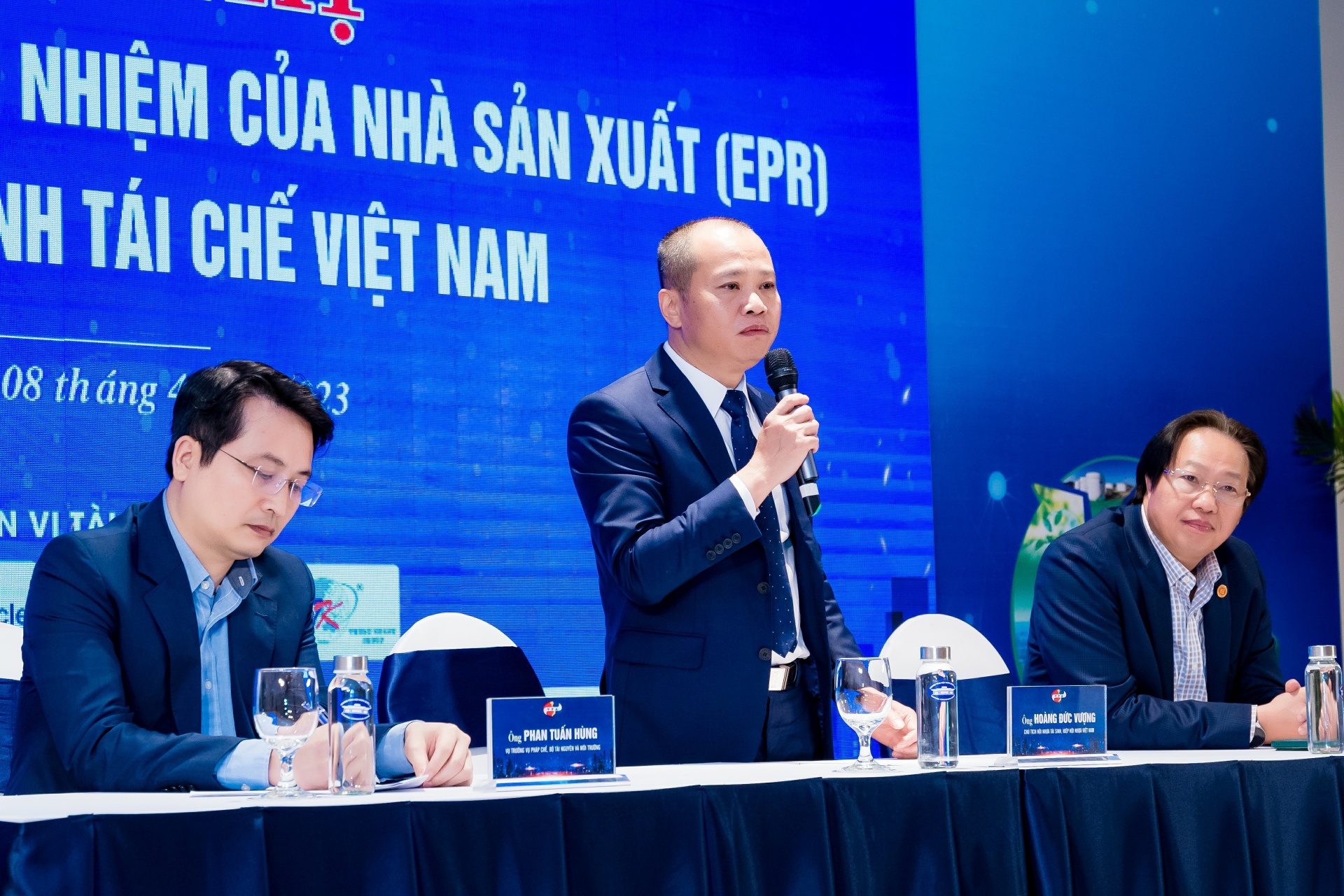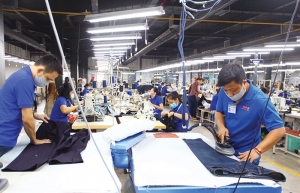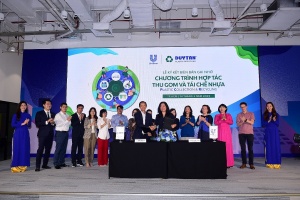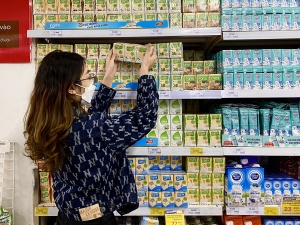Efforts gear towards efficient recycling
On the weekend of April 8, the Executive Committee of the Vietnam Plastics Association Recycling Branch (VPARB) held a conference titled Extended Producer Responsibility Policy (EPR) – Opportunities for Vietnam's recycling industry at the National Convention Centre in Hanoi.
The event’s major objectives were to create a platform to enable the branch members to share information, enhance cooperation, and promote both domestic and international exchange.
At the conference with more than 100 VPARB members nationwide, Phan Tuan Hung, director general of the Department of Legal Affairs under the Ministry of Natural Resources and Environment (MoNRE), and Ho Duc Lam, chairman of the Vietnam Plastics Association, advocated the VPARB's role in participating in the circular economy, satisfying the recycling criteria in the EPR policy, and ensuring the country avails of the industry's future openings.
Hung said, “Since EPR became the buzzword in Vietnam, I have participated in numerous events on the theme, but this is the first time I have joined a meeting with so many recycling units, reflecting the improvement in the mindset of many businesses on this topical issue.”
With the support of leaders from the Vietnam Plastics Association, the VPARB has participated in recommending practical and innovative policy proposals in an attempt to create an increasingly modern recycling industry for the nation.
Some of the proposals include directing materials that are to be recycled to the most effective players in the industry, supporting them with suitable incentives such as lower environmental taxes, and building a market for recycled plastic granules.
Along with the global trend and the government's commitment to building a green and sustainable economy, the move creates unprecedented possibilities for the recycling industry.
 |
Hoang Duc Vuong, VPARB chairman noted, "Before us is a future with many hurdles, but more than ever, opportunities are also opening up. Support from the government, relevant ministries, and various sectors has been indispensable in every step forward we have made over the years. It is that support that has created a stable and environmentally sound policy in terms of scrap plastic import and recycling, and it has led to a new playing field to combat plastic pollution in the country."
The conference listened to practical advice from the Department of Legal Affairs under the MoNRE, the Vietnam Plastics Association, and the Environmental Protection Fund, along with brands, corporations, and enterprises working in the field of collection, import, manufacturing, and trading of recycled plastic, helping all parties to fully grasp the full picture of this growing industry.
According to a study by the Vietnam Cleaner Production Centre, Vietnam's plastic industry has reported a high growth rate averaging 16-18 per cent per year. However, it has only met 15 per cent of the demand for polypropylene, 30 per cent for PET, 50 per cent for PVC.
The total amount of plastic raw material produced annually within the country can currently only offset about 20 per cent of the demand, with imported materials constituting the remaining 80 per cent.
Across Vietnam, plastic waste management in general is still deemed inadequate, and the nascent recycling industry makes it difficult to mitigate plastic leakage into the environment.
 | Small textile groups left behind as big brands take on recycling Some of Vietnam’s biggest textile groups are picking up on the worldwide trend of utilising recycled materials, with several largest global brands increasingly switching to greener methods. |
 | Unilever Vietnam partners with Duy Tan Recycling Unilever Vietnam has just signed a partnership with Duy Tan Recycling with a plan to collect and recycle 30,000 tonnes of plastic waste. |
 | Tetra Pak invests in Dong Tien factory to promote recycling of used cartons Tetra Pak, the Swedish food processing and packaging solutions company, and Dong Tien Packaging and Paper Co., Ltd. have announced a co-investment of €3.5 million ($3.97 million) to upgrade and expand the recycling capacity of used beverage cartons in Vietnam. |
What the stars mean:
★ Poor ★ ★ Promising ★★★ Good ★★★★ Very good ★★★★★ Exceptional
Related Contents
Latest News
More News
- Agentic AI set to reshape Vietnam’s enterprise landscape (February 10, 2026 | 12:06)
- Agro-forestry and fisheries exports jump nearly 30 per cent in January (February 09, 2026 | 17:45)
- Canada trade minister to visit Vietnam and Singapore (February 09, 2026 | 17:37)
- New tax incentives to benefit startups and SMEs (February 09, 2026 | 17:27)
- Vietnam forest protection initiative launched (February 07, 2026 | 09:00)
- China buys $1.5bn of Vietnam farm produce in early 2026 (February 06, 2026 | 20:00)
- Vietnam-South Africa strategic partnership boosts business links (February 06, 2026 | 13:28)
- Mondelez Kinh Do renews the spirit of togetherness (February 06, 2026 | 09:35)
- Seafood exports rise in January (February 05, 2026 | 17:31)
- Accelerating digitalisation of air traffic services in Vietnam (February 05, 2026 | 17:30)

 Tag:
Tag:


























 Mobile Version
Mobile Version